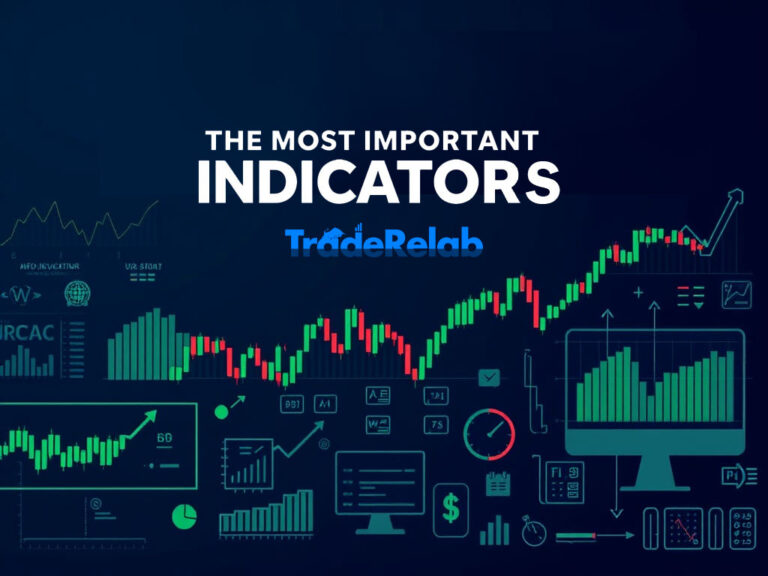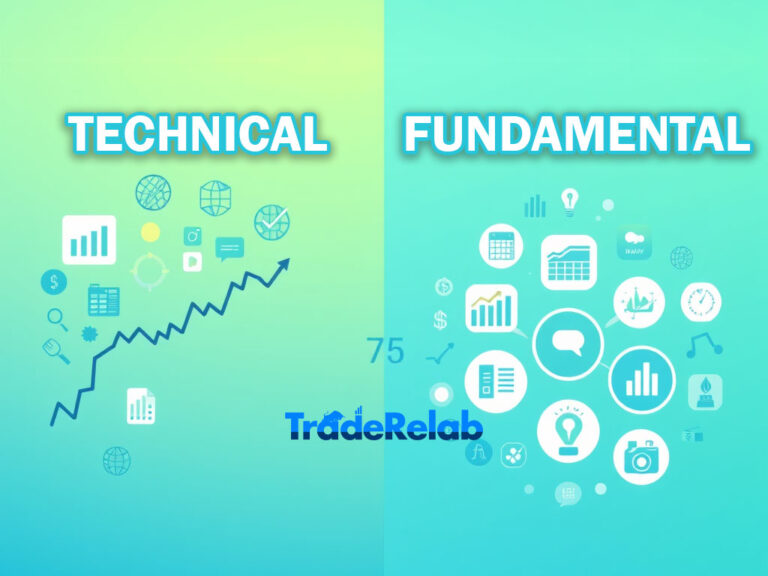How Economic News Affects the Financial Markets

In today’s interconnected world, economic news plays a crucial role in shaping the behavior of financial markets. Whether it’s a report on GDP growth, unemployment rates, inflation, or central bank decisions, economic news often causes significant fluctuations in stock prices, bond yields, and currency values. Understanding how economic news impacts financial markets is key for investors, businesses, and policymakers. This article explores the various ways in which economic news influences financial markets and offers insights into how market participants can navigate these effects.

The Role of Economic Indicators in Financial Markets
Economic indicators are statistical data points released by governments and other organizations that provide information on the health and performance of an economy. These indicators can include anything from inflation rates to job growth figures, consumer confidence, and interest rates. Each piece of economic news provides a snapshot of economic conditions, which investors use to make decisions regarding stocks, bonds, commodities, and currencies.
1. Gross Domestic Product (GDP)
GDP is one of the most important indicators of an economy’s health. It measures the total value of goods and services produced within a country. When GDP shows strong growth, it signals that the economy is doing well, which is generally positive for the financial markets. A growing economy means businesses are likely to perform better, leading to higher corporate profits and stock prices.
On the other hand, a contraction in GDP, which signals an economic slowdown or recession, can lead to market sell-offs. Investors often interpret a shrinking GDP as a sign that companies will struggle to maintain profits, resulting in lower stock prices and a weaker economy.
2. Unemployment Rate
The unemployment rate provides insight into the labor market’s health. When unemployment is low, it suggests that most people are working, which is a positive signal for the economy. Low unemployment generally leads to higher consumer spending, which can boost corporate profits and push stock prices higher.
However, if unemployment rises sharply, it may suggest that businesses are struggling, leading to less spending and weaker economic performance. A sudden increase in unemployment can also raise fears of an economic slowdown or recession, causing markets to react negatively.
3. Inflation Rates
Inflation refers to the rate at which prices for goods and services rise over time. A moderate level of inflation is typically considered healthy for the economy because it indicates that demand for goods and services is rising. However, when inflation becomes too high, it can erode purchasing power and reduce consumer spending, which negatively impacts financial markets.
Central banks, such as the Federal Reserve in the U.S., closely monitor inflation and may take action to control it. For example, the central bank might raise interest rates to cool down an overheating economy, which can cause bond yields to rise and stock prices to fall. Conversely, if inflation is too low, the central bank may lower interest rates to stimulate economic activity, potentially leading to higher stock prices.
4. Central Bank Announcements
Central banks, particularly the Federal Reserve in the United States, the European Central Bank, and the Bank of Japan, play a crucial role in influencing financial markets. The decisions these institutions make regarding interest rates can have profound effects on the economy and financial markets. When central banks raise interest rates, borrowing becomes more expensive, which can lead to reduced consumer spending and business investment, causing stock prices to fall.
Alternatively, when central banks lower interest rates, borrowing becomes cheaper, which can spur economic activity and lead to higher stock prices. Investors closely monitor central bank meetings and announcements for any signals about future monetary policy. These decisions are often one of the most significant drivers of market movements.

How Economic News Affects Different Asset Classes
The impact of economic news varies depending on the asset class being considered. Different markets react in different ways to the same piece of economic data. Here’s a breakdown of how major asset classes are affected by economic news:
1. Stock Markets
Stock markets are highly sensitive to economic news. Positive economic reports, such as strong GDP growth or low unemployment, tend to boost investor confidence and lead to higher stock prices. Conversely, negative news, such as a rise in unemployment or a slowdown in GDP growth, can cause stock prices to drop as investors fear that companies will experience reduced profits.
Certain sectors of the stock market are more sensitive to economic news than others. For instance, consumer discretionary stocks (such as those of retailers) are heavily influenced by economic conditions, as their performance depends on consumer spending. In contrast, utility stocks are less affected by short-term economic fluctuations because they provide essential services that people continue to use regardless of the economic cycle.
2. Bond Markets
The bond market is also influenced by economic news, particularly inflation data and interest rate decisions by central banks. When economic news suggests rising inflation, bond yields often increase as investors demand higher returns to compensate for the decreased purchasing power of future interest payments. On the other hand, when economic news points to low inflation or economic slowdown, bond yields tend to fall, and bond prices rise.
The Federal Reserve’s actions on interest rates are a major driver of bond market movements. If the central bank raises interest rates to combat inflation, bond prices tend to fall, as newer bonds will offer higher yields compared to existing bonds. Conversely, if interest rates are lowered, bond prices tend to rise as the existing bonds with higher yields become more attractive.
3. Currency Markets
Currencies are heavily influenced by economic news, particularly interest rate differentials between countries. When economic reports suggest that a country’s economy is outperforming others, its currency tends to appreciate relative to other currencies. For example, if the U.S. economy shows strong growth, the U.S. dollar may rise in value because investors may expect the Federal Reserve to increase interest rates, making U.S. assets more attractive.
On the other hand, poor economic data, such as high unemployment or low GDP growth, can lead to a decline in a country’s currency value. Central bank announcements and interest rate decisions are also critical factors in currency markets, as changes in interest rates influence the returns that investors can earn on assets denominated in different currencies.
The Importance of Timing and Market Sentiment
While economic news is an essential factor driving financial markets, the timing and market sentiment surrounding that news are just as crucial. Sometimes, markets react strongly to news that was expected, as investors have already priced it in. Other times, the market may be caught off guard by a surprise piece of economic news, leading to sudden and volatile price movements.
For example, a report showing better-than-expected GDP growth may cause stocks to rally, but if the market has already anticipated strong growth, the impact may be muted. On the other hand, a surprise interest rate cut by a central bank may cause a sharp reaction in the markets, even if the economic data didn’t necessarily justify the move.
Market sentiment, or the collective mood of investors, can also influence how economic news is interpreted. In times of uncertainty or fear, investors may overreact to negative news, causing greater volatility. Conversely, in times of optimism, investors may interpret even neutral economic news as a sign of future growth, leading to more positive market movements.
Conclusion
Economic news is a powerful driver of financial markets, with various indicators and reports shaping market sentiment and investor behavior. From GDP growth and inflation rates to unemployment data and central bank decisions, economic news provides the information investors need to make informed decisions about their portfolios. However, understanding how these reports affect different asset classes and recognizing the role of market sentiment can help investors navigate the complex world of financial markets.
As economic conditions change and evolve, staying informed and understanding the broader economic landscape will be essential for anyone looking to succeed in the financial markets.
FAQ:
1. How often is economic news released?
Economic news is released regularly by various government agencies, central banks, and private institutions. Key reports like GDP, inflation, and unemployment are typically published quarterly or monthly, while central banks may announce interest rate decisions at regular intervals, such as every six weeks.
2. Can economic news affect short-term and long-term investments?
Yes, economic news can influence both short-term and long-term investments. Short-term traders may react quickly to news, causing immediate fluctuations in stock prices, while long-term investors may consider the broader trends suggested by economic reports, such as GDP growth or inflation, in making more strategic decisions.
3. What types of economic news have the biggest impact on financial markets?
Key indicators such as GDP growth, unemployment rates, inflation, and central bank interest rate decisions tend to have the biggest impact on financial markets. Reports indicating strong economic growth or inflationary pressures typically lead to greater market movement.
4. How can investors prepare for the release of economic news?
Investors can stay informed by following economic calendars and watching for announcements related to key economic indicators. Additionally, it’s important to consider market sentiment and how investors might interpret the news in the context of existing economic conditions.






